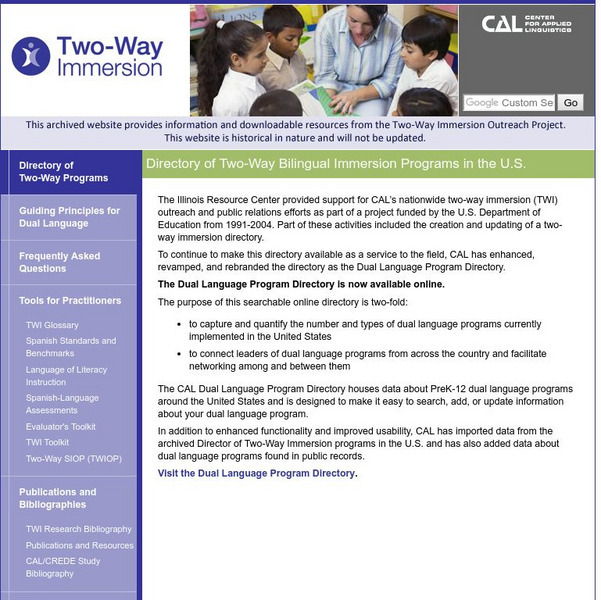Language Guide
Language Guide: Mandarin Chinese Vocabulary
Useful resource for learning everyday Chinese vocabulary -- roll over each image to hear the correct pronunciation and see how the word is written. Corresponding English section (and other languages) makes this site a useful tool for ESL...
BBC
Bbc: Real Chinese
A lively introduction to Mandarin Chinese in 10 short parts in the form of slideshow presentation with audio content. Useful phrases with tips on pronunciation and grammar, cultural notes, self-evaluated challenge for comprehension are...
PBS
Pbs Learning Media: Mandarin Movement Lesson Plan
In this activity, language and movement unite. There are two teachers who will read a command, once in Mandarin and once in English. The students listen to both languages and then perform what the command is.
Read Works
Read Works: Why Learn Chinese
[Free Registration/Login Required] Students read about why some third-graders are learning to speak Mandarin. A question sheet is available to help students build skills in drawing conclusions.
Other
Directory of Two Way Bilingual Immersion Programs
An excellent reference for anyone planning a two-way bilingual program, or needing to contact an existing program. Links directly to the schools listed.
Curated OER
Etc: Maps Etc: Ethnolinguistic Groups of China, 1971
" Ethnolinguistic Groups - Almost all inhabitants of mainland China are of Mongoloid stock, and ethnic distinctions in the country are largely linguistic rather than racial. The Han comprise nearly 95 percent of the population; the...
University of Washington
Neuroscience for Kids Other Translations
Translations of Neuroscience for Kids, an excellent site on the brain and brain science by neuroscientists at the University of Washington. Includes Chinese (Mandarin and Cantonese), Portuguese, Italian, Slovene, and Korean. Translations...
ClassFlow
Class Flow: National Geographic Survey
[Free Registration/Login Required] How much do you know about the world around us? Questions provided by National Geographic Survey. http://www.nationalgeographic.com/roper2006/findings.html






